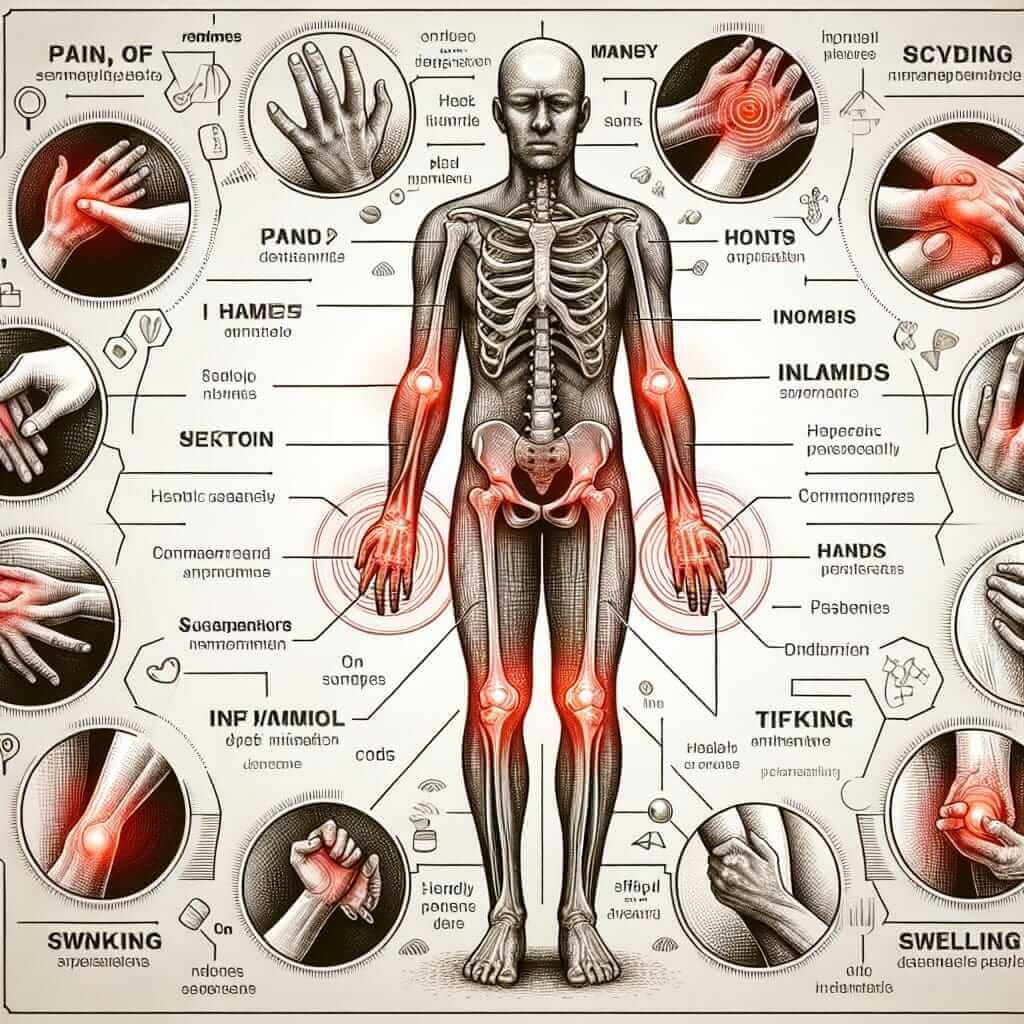Are you aiming for a high score on the IELTS exam and feeling daunted by the complex vocabulary found in health-related topics? Fear not! This guide will equip you with a comprehensive understanding of “rheumatology” and its related terms, boosting your confidence and enhancing your lexical resource for the exam.
Before we delve into the intricacies of “rheumatology,” let’s explore some synonyms and antonyms to broaden our vocabulary:
Synonyms:
- Arthritis: /ɑːrˈθraɪtɪs/ (noun) – inflammation of one or more joints, causing pain and stiffness.
Example: Osteoarthritis is a common form of arthritis that affects the elderly. - Musculoskeletal disorders: /ˌmʌskjʊloʊˈskɛlɪtəl dɪsˈɔːrdərz/ (noun) – a wide range of conditions affecting the muscles, bones, and joints.
Example: Musculoskeletal disorders are a leading cause of disability worldwide. - Connective tissue diseases: /kəˈnɛktɪv ˈtɪʃuː dɪˈzizɪz/ (noun) – a group of diseases that affect the tissues that support and connect the body.
Example: Connective tissue diseases can affect various parts of the body, including the skin, joints, and internal organs.
Antonyms:
- Health: /hɛlθ/ (noun) – the state of being free from illness or injury.
Example: Regular exercise is essential for maintaining good health.
Understanding “Rheumatology”
Rheumatology /ˌruːməˈtɒlədʒi/ (noun) is a branch of medicine devoted to the diagnosis and therapy of rheumatic diseases. These diseases affect the joints, muscles, bones, and sometimes other internal organs (e.g., heart, lungs).

Rheumatology in the IELTS Exam
The term “rheumatology” and related vocabulary frequently appear in the IELTS exam, particularly in the Listening and Reading sections. You may encounter passages discussing:
- Types of rheumatic diseases: rheumatoid arthritis, osteoarthritis, gout, lupus
- Symptoms of rheumatic diseases: pain, swelling, stiffness, fatigue
- Treatment options: medication, physiotherapy, surgery
Applying “Rheumatology” in Your IELTS Responses
Writing Task 2:
Topic: The increasing prevalence of chronic diseases, such as arthritis, poses significant challenges to healthcare systems worldwide. Discuss the causes of this trend and suggest possible solutions.
Sample response:
“The rising incidence of chronic illnesses, particularly rheumatic conditions like arthritis, presents a formidable challenge to global healthcare infrastructures. Factors such as aging populations, sedentary lifestyles, and increasing obesity rates contribute significantly to this trend…”
Speaking Part 3:
Examiner: What are some of the challenges faced by people with chronic illnesses?
Candidate: “Individuals with chronic illnesses, such as those managed by rheumatologists, often face numerous obstacles. These can include persistent pain, limited mobility, and the need for ongoing medical care, which can be expensive and time-consuming…”
Expanding Your Lexicon:
Here are some additional terms related to rheumatology that can enrich your IELTS vocabulary:
- Inflammation: /ˌɪnfləˈmeɪʃən/ (noun) – a localized physical condition in which part of the body becomes reddened, swollen, hot, and often painful, especially as a reaction to injury or infection.
Example: Inflammation is a common symptom of many rheumatic diseases. - Autoimmune disease: /ˌɔːtoʊɪˈmjuːn dɪˈziz/ (noun) – a condition in which your immune system mistakenly attacks your body.
Example: Rheumatoid arthritis is an autoimmune disease that affects the joints. - Physiotherapy: /ˌfɪziəˈθɛrəpi/ (noun) – the treatment of disease, injury, or deformity by physical methods such as massage, heat treatment, and exercise rather than by drugs or surgery.
Example: Physiotherapy can be helpful in managing the symptoms of arthritis.
Collocations with “Rheumatology”:
- Rheumatology clinic: This is where patients with rheumatic diseases receive specialized care.
- Rheumatology nurse specialist: A nurse trained to provide expert care for people with rheumatic conditions.
- Advances in rheumatology: Ongoing research constantly improves the diagnosis and treatment of rheumatic diseases.
Idioms and Expressions:
- To have a bone to pick with someone: To have a complaint or grievance to discuss with someone. (This idiom is not specific to rheumatology but relates to the skeletal system)
Example: “I have a bone to pick with you – you borrowed my notes on rheumatology and didn’t return them!”
Conclusion:
Mastering the vocabulary related to “rheumatology” is a valuable asset for anyone preparing for the IELTS exam. By understanding these terms and their usage in context, you’ll be well-equipped to excel in the Listening and Reading sections and confidently discuss health-related topics in the Speaking and Writing sections. Remember to practice using these words in your own sentences and practice tests to solidify your understanding.